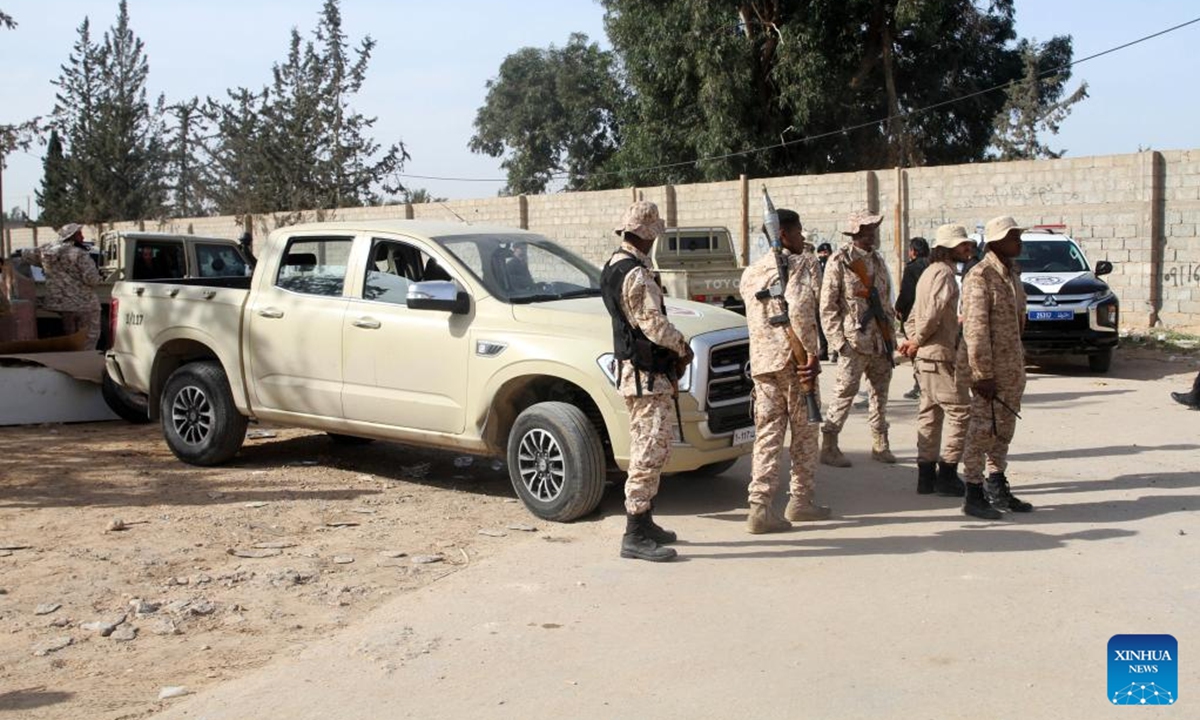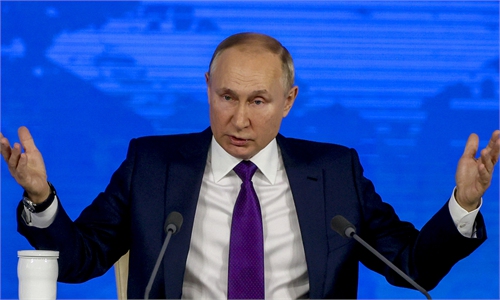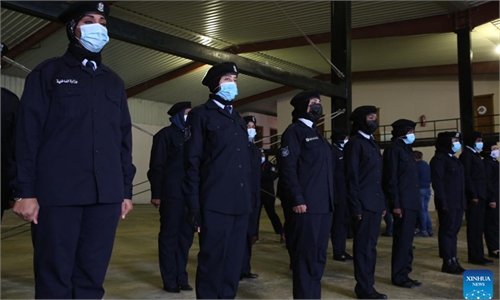
Military personnel are seen in Ain Zara area in southern Tripoli, Libya, Dec. 25, 2021. A number of roads in southern Tripoli were reopened Saturday after they were closed due to recent military mobilization. (Photo by Hamza Turkia/Xinhua)
Libya's interim Prime Minister Abdulhamid Dbeibah on Sunday called for a constitution to be established before holding delayed presidential and parliamentary elections."Now more than ever we need a constitution that protects the country and its citizens, and that governs the elections," Dbeibah said.
Libya collapsed into years of violence after the 2011 overthrow and killing, during a NATO-backed revolt, of leader Moamer Kadhafi who scrapped the country's constitution in 1969.
Rival power bases and administrations arose in the country's east and west.
After a landmark cease-fire in 2020, a United Nations-led process saw elections scheduled for December 24, 2021, but the polls were postponed after months of tensions, including over divisive candidates and a disputed legal framework. Libyans "want free elections that respect their will, not the extension of the crisis with a new transition," Dbeibah told a symposium in the capital Tripoli titled: "The constitution first."
"Our problem today is the absence of a constitutional base or of a constitution," he said.
The event brought together high-profile figures from Libya's west including Khaled el-Mechri, who heads the High Council of State - a Tripoli-based body that is equivalent to Libya's senate and rivals the House of Representatives, based in the eastern city of Tobruk.
"Certain parties have worsened the crisis" with "tailor-made" laws favoring certain candidates over others, Dbeibah charged, referring to House speaker Aguila Saleh's September decision to ratify a contentious electoral law.
Critics said the move bypassed due process and favored a bid by Saleh's ally, eastern-based strongman Khalifa Haftar.
Dbeibah, Saleh and Haftar all put their names forward for the presidential vote.
An official from the elected commission in charge of drafting a new constitution, Daou al-Mansouri, told Sunday's symposium that the body had in July 2017 submitted a draft constitution to the House. The draft was supposed to be put to a referendum, which has never been organized.
Saleh on Tuesday proposed establishing a new commission of Libyan and foreign experts to draw up a new draft constitution.



